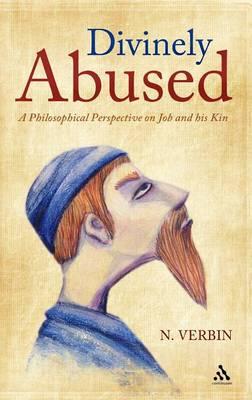Full Product Details
Author: Dr N. Verbin
Publisher: Bloomsbury Publishing PLC
Imprint: Continuum International Publishing Group Ltd.
Dimensions:
Width: 15.60cm
, Height: 1.10cm
, Length: 23.40cm
Weight: 0.432kg
ISBN: 9780826435880
ISBN 10: 0826435882
Pages: 184
Publication Date: 11 April 2010
Audience:
Professional and scholarly
,
Professional & Vocational
Format: Hardback
Publisher's Status: Active
Availability: Manufactured on demand

We will order this item for you from a manufactured on demand supplier.
Language: English
Reviews
Nehama Verbin has written an important and original book. Through an insightful study of Job's relation to his God, she offers fresh insights into key notions in ethics and the philosophy of religion, such as affliction, faith, and forgiveness . Her acute and probing discussions of these will leave moral philosophers, philosophers of religion, and students of the Book of Job deeply in her debt. Professor Peter A. Byrne, Emeritus Professor of Ethics and the Philosophy of Religion, King's College London, UK. Focused on the book of Job, these systematic reflections on the perennial themes of power, dependency, suffering and reconciliation provide rich food for thought. John Cottingham, Professor Emeritus of Philosophy, University of Reading, UK Through an original and subtle reading of the book of Job, Verbin offers us one of the most compelling and philosophically astute accounts of suffering within the religious stance. Verbin's gripping, lucid and deep discussion is of great importance to the ongoing conversation of the human encounter with evil. Moshe Halbertal, Professor of Jewish Thought and Philosophy, Hebrew University, Israel Verbin studies the instances of abuse delivered by God in the Old Testament's book of Job. The differences between suffering and abuse are presented and applied to the story in an agnostic manner. The injustices inflicted upon Job lead to feelings of cynicism and hatred of his abuser thus causing a religious dilemma. Drawing from psychological, philosophical, and theological references on happiness, self-worth, and forgiveness, Verbin provides an insightful analysis of Job's dilemma. Job's ultimate position of forgiveness is presented as empowering as his relationship with God is not restored to the intimacy it had once enjoyed, but rather, to a distant relationship of caution. -Eithne O'Leyne, BOOK NEWS, Inc.
Focused on the book of Job, these systematic reflections on the perennial themes of power, dependency, suffering and reconciliation provide rich food for thought. --John Cottingham, Professor Emeritus of Philosophy, University of Reading, UK
Through an original and subtle reading of the book of Job, Verbin offers us one of the most compelling and philosophically astute accounts of suffering within the religious stance. Verbin's gripping, lucid and deep discussion is of great importance to the ongoing conversation of the human encounter with evil. Moshe Halbertal, Professor of Jewish Thought and Philosophy, Hebrew University, Israel
Author Information
N. Verbin is an Assistant Professor at Tel Aviv University and a senior research fellow at the Shalom Hartman Institute in Jerusalem.




